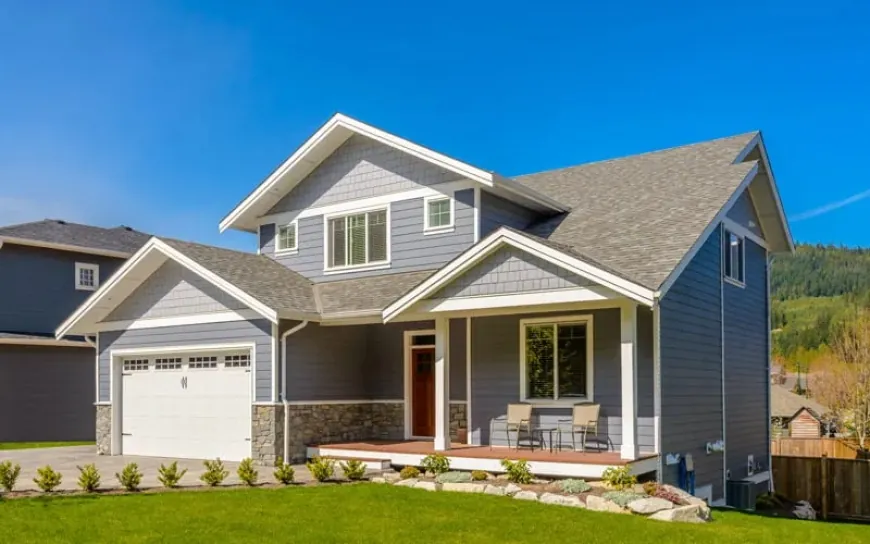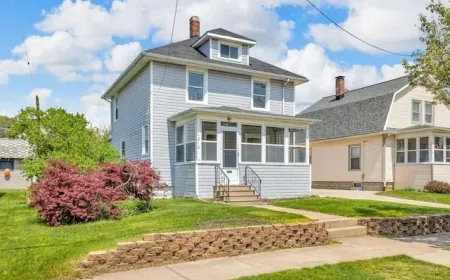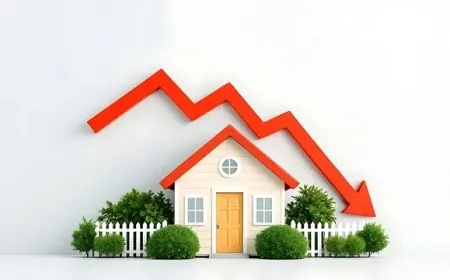Can House-Hacking Help First-Time Buyers Build Real Estate Wealth in 2025?
How are first-time buyers affording homes in 2025? House-hacking is the trick they’re using to cut mortgage costs.

Real estate investing is typically seen as something reserved for seasoned investors with deep pockets. But in 2025, that narrative is shifting.
House-hacking, a strategy where homeowners live in one unit of a property and rent out the others, is gaining traction among first-time buyers. It allows new investors to start building equity while generating rental income to offset their monthly mortgage payments.
According to the latest figures from Realtor.com, 13% of home purchases in 2024 were made by investors, reflecting the growing appeal of real estate as a wealth-building tool. At the same time, 10.8% of sellers were investors cashing out, marking an all-time high for investor sell-offs.
On social media, house-hacking is becoming a trending topic. Personal finance influencer Austin Hankwitz recently broke down the math of house-hacking in a TikTok video that has reached millions of viewers, making the strategy more visible to everyday buyers looking for creative ways to get into real estate.
How the House-Hacking Math Works
Hankwitz used a real-life example of a four-unit property in Knoxville, Tennessee, to explain the numbers behind house-hacking.
Here’s how it breaks down:
-
Home Price: $650,000
-
Down Payment (5%): $32,500
-
Monthly Payment (Mortgage + Taxes + Insurance): $4,200
-
Rental Income from Three Units: $3,000/month
-
Owner’s Out-of-Pocket Living Cost: $1,200/month
In this scenario, the property generates $46,800 per year in rental income, leaving the owner with a reduced personal housing expense while building equity over time.
If the property follows historical appreciation trends—it has gained 50% in value over the past decade—it could be worth $975,000 in ten years. With a mortgage balance of $530,000 at that point, the owner would have $445,000 in home equity, largely paid by rental income from tenants.
This model shows how a $32,500 investment could potentially turn into nearly half a million dollars in equity, while drastically reducing the cost of homeownership.
Is House-Hacking Practical for New Investors?
While the math looks appealing, experts say it’s important to understand the full picture before jumping in.
“House-hacking lets beginners reduce their living expenses while building landlord experience,” said Nathan Miller, founder of property management platform Rentec Direct.
By living on-site, homeowners can monitor property conditions closely, handle repairs as needed, and oversee tenants firsthand.
But Miller warns that managing tenants can be demanding. House-hackers need to be ready for late-night maintenance calls, legal compliance issues, and the interpersonal challenges of landlord-tenant relationships.
Multiple ways to House-Hacking
House-hacking isn’t limited to buying a fourplex. There are many creative approaches first-time buyers can use to make this strategy work.
Nathan Miller notes that duplexes, triplexes, and four-unit homes are the most traditional options since they qualify for standard residential mortgages. However, single-family homeowners are increasingly converting basements, garages, or detached structures into accessory dwelling units (ADUs) to generate rental income.
Andrew Fortune, a Colorado-based Realtor and owner of Great Colorado Homes, says one of his recent clients converted a garage into an Airbnb rental that now covers the owner’s entire mortgage and generates additional income.
Platforms like Airbnb and Vrbo have made short-term rental house-hacking popular in tourist-heavy markets, though local ordinances vary and must be checked before listing.
House-Hacking Makes High-Priced Homes More Accessible
One of the most appealing aspects of house-hacking is that it allows first-time buyers to purchase properties they might not otherwise afford.
With programs like Fannie Mae’s HomeReady loan or FHA financing, buyers can qualify for a mortgage on a multi-unit property with as little as 3.5% to 5% down. This opens the door to homes priced at $500,000, $750,000, or even over $1 million—properties that would normally be out of reach for first-time buyers.
By using rental income to offset the mortgage, the actual out-of-pocket monthly cost becomes manageable—even in higher-cost areas.
House-Hacking Reduces Living Expenses While Building Equity
At its core, house-hacking is about reducing your personal housing costs.
Instead of paying rent or a full mortgage on your own, you live in one part of the property while tenants pay the majority of the bill. This allows you to accumulate savings, invest elsewhere, or pay down the principal faster.
For first-time investors, this strategy also serves as an introduction to real estate management without the need to buy a standalone rental property right away.
Landlord Skills and Local Laws
Real estate experts caution that house-hacking comes with a learning curve, particularly around landlord responsibilities and local housing regulations.
Andrew Fortune emphasizes that living onsite makes managing tenants easier, but it doesn’t eliminate the responsibilities. New owners must still handle:
-
Lease agreements
-
Tenant screenings
-
Property repairs and maintenance
-
Compliance with fair housing laws and rental ordinances
Before jumping into house-hacking, first-time buyers should consult with a real estate attorney or property manager to understand local rules—especially if they plan to rent short-term through Airbnb or similar platforms.
Can House-Hacking Build Wealth in 2025?
For first-time buyers with limited capital, house-hacking is one of the few strategies that allows you to live in your investment while building long-term wealth.
By offsetting monthly costs, gaining landlord experience, and benefiting from property appreciation, house-hacking creates an accessible path into real estate without the full financial risk of a separate investment property.
But success depends on picking the right property, understanding landlord obligations, and being realistic about the time commitment involved.
If done thoughtfully, house-hacking can be more than just a trendy social media strategy—it can be a stepping stone to financial freedom for new investors in 2025.
Also Read: Housing Prices Could Slip Next—These 6 Signs Show Why
|
Follow iShook on Social Media for More Tips and Updates! |

































































